War in Gaza puts daily life on hold in Israel
The Israelis are struggling to resume their activities in schools and workplaces, with air-raid shelters standing by, after four weeks of conflict. The conflict is also battering the Middle East’s most developed economy
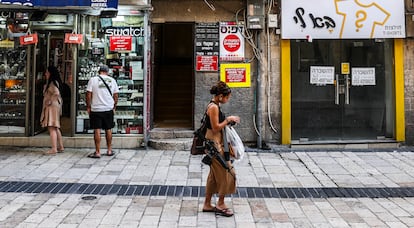

“I’m desperate. I don’t know how we’re going to get out of this war,” bemoans Gideon Bor — a 79-year-old archetype of the Ashkenazi (Jews of European origin) elite who forged the state of Israel — on Thursday afternoon in the forecourt of Tel Aviv’s Museum of Contemporary Art. “The images coming out of Gaza are terrible,” admits this retired civil engineer and constructor who fought in previous conflicts. “But what else can we do after the massacre committed by Hamas on October 7?” he argues with a mantra that is repeated by most Israelis in the face of civilian massacres such as the one at Gaza’s Al Shifa hospital.
He is holding a poster with the image of Monar Yanai, his son’s 40-year-old sister-in-law — “a joyful, creative woman,” he remembers —, who had gone to sell the handcrafted jewelry she designs at the Supernova music festival near the border of the Gaza Strip, where she was taken hostage along with dozens of Israeli civilians. “We don’t know what to do,” summarizes the sentiment of a generation that fought against neighboring Arab countries in the Six-Day war (1967) and Yom Kippur (1973) war and dreamed of making peace with the Palestinians in the Oslo Accords (1993). After losing faith in the government and joining protest marches against Prime Minister Benjamin Netanyahu over the past few months, he says he has also lost faith in the army. “The only thing that is clear is that Hamas must be eliminated for good,” he concludes.
Like the rest of Israelis, Bor has seen his day-to-day life — in his case as a retired man devoted to outings with his children and grandchildren, to hobbies shared with friends — brought to a halt by the conflict in Gaza. Now, every afternoon, he rallies with yellow ribbons together with other families of hostages — they have not heard anything about them for the last four weeks — captured by the Islamist militia. As more than 350,000 men and women between the ages of 21 and 40 have been enlisted as army reserves, sent to the front lines in Gaza, Lebanon and the West Bank, from their jobs in factories and stores, in the countryside and in school classrooms.
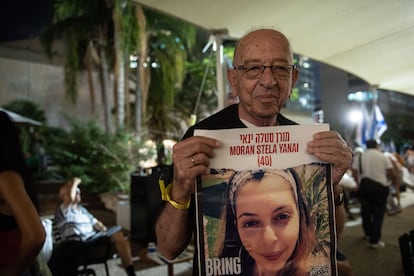
Israel was a country of ghost towns back in the early days of the conflict. It is now trying to recapture its pre-October 7 heyday. Since the end of last month, students have returned to schools and high schools, as long as there is an air raid shelter nearby, which is not the case in 20% of the schools.
“My two older grandchildren have been placed in a school and kindergarten in Jerusalem. The baby is with the parents,” says Meir Margalit, a 71-year-old Israeli historian aligned with the pacifist left. “My son was evacuated from the city of Ashkelon [about nine miles from the Gaza border, where Hamas rockets often fall]. All five members of his family are now living in one room in my house,” he explains. “It’s not too dramatic compared to what thousands of Palestinian families are enduring,” clarifies Margalit, who admits he no longer wants to follow the news: “The pain overwhelms me and I try my best to avoid the heartbreaking stories of the survivors of the murderous attack [by Hamas] on October 7, but it’s useless.”
Due to the shortage of teachers, most pupils in Israel are studying in a combination of in-person and online schooling, except in areas close to Gaza and Lebanon, where more than 200,000 people have been evacuated and schools remain closed. Numerous parents have been forced to abandon their jobs to take care of their children.
Practically all Jewish university students have departed for the front. Israeli Arabs (20% of the population) are not obliged to complete military service, but classrooms remain closed. The start of the academic year, which is expected to last several weeks into next summer, has been postponed until December 3 at the Hebrew University of Jerusalem at the earliest, according to The Times of Israel digital news website.
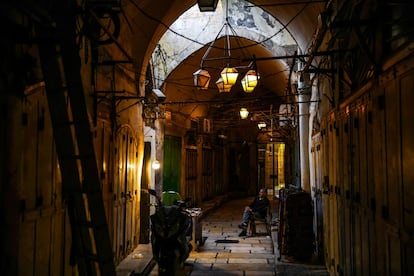
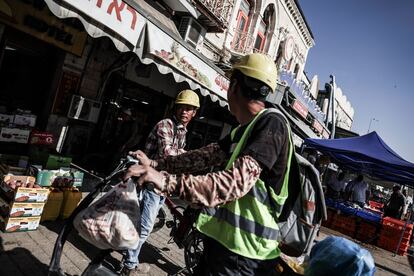
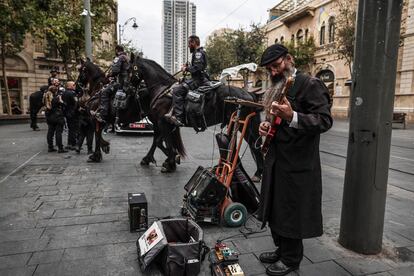

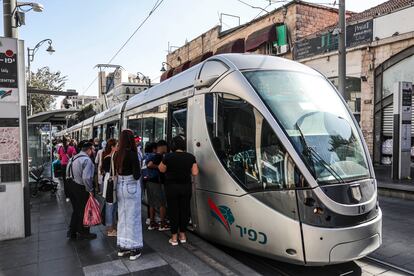
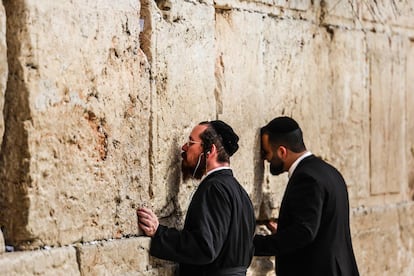
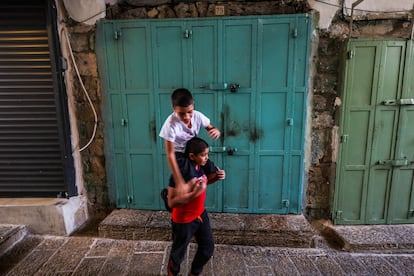
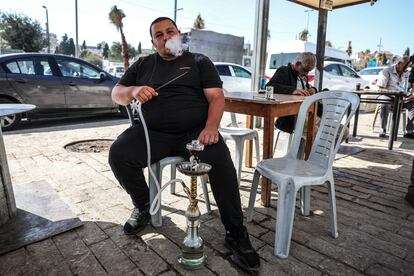
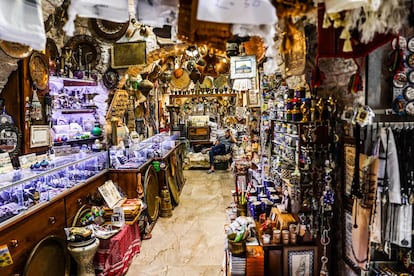
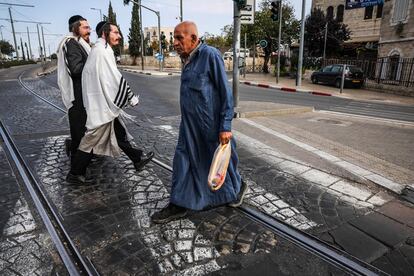
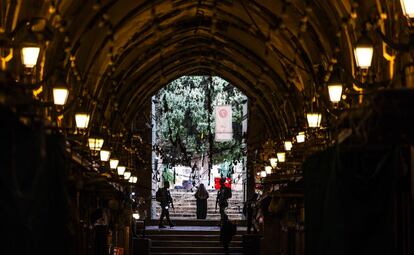
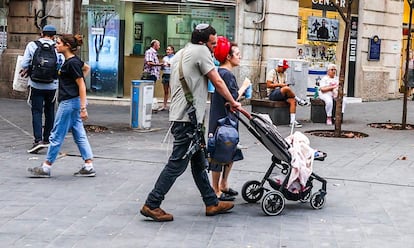
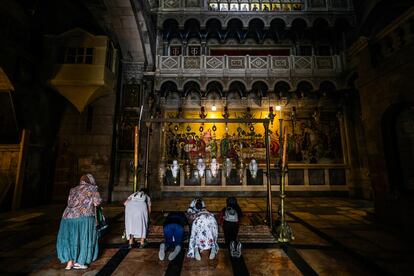
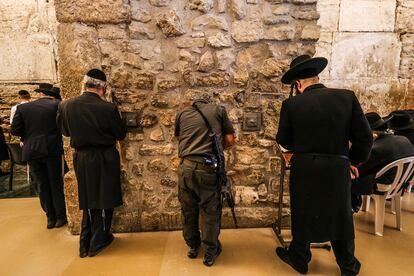
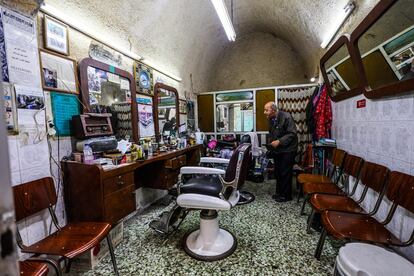
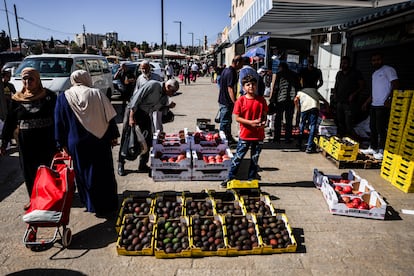
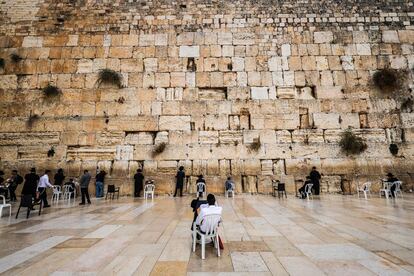
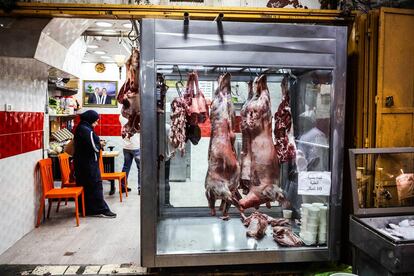
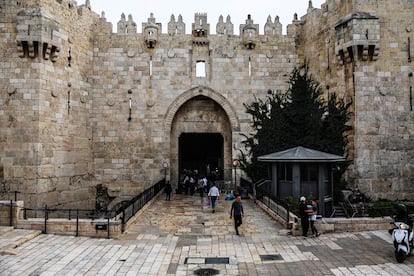
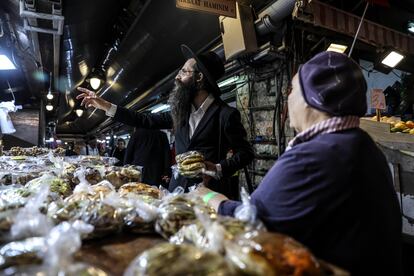
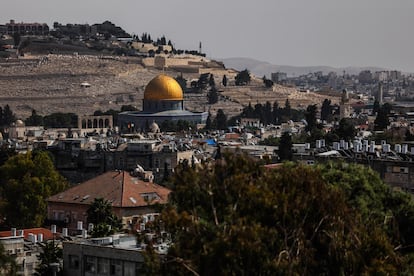
The Bank of Israel is working under the scenario that the war will not end until mid to late December. The economy is being hammered by the fighting in Gaza, which has slashed this year’s growth forecast from 3% to 2.3% and has already depreciated the shekel by nearly 10% against the dollar and the euro. However, Bank of Israel Governor Amir Yaron assures that the economy remains stable and resilient. “It has already recovered quickly in the past after more challenging times,” reported the daily newspaper, Yediot Ahronot.
Argentine-born engineer Ricardo Grichener, 56, has dismissed all 500 Palestinians employed at the construction sites he manages in Jerusalem and other parts of Israel. “We no longer have anything to do with them. I don’t see a possible political solution after what has happened.” The 140,000 Palestinians in the West Bank and some 18,000 in Gaza with work permits in Israel have not been able to go to their jobs since October 7. His nephew Omer Wonked, a 22-year-old waiter at a Tel Aviv restaurant, was also kidnapped at the Supernova festival.
“We know he is alive, there is an image on Hamas social media showing him handcuffed,” he warns. “Our troops have to keep advancing in Gaza and finish off the terrorists until Omer is liberated. What Hamas did was a crazy exaltation of death, like the Nazis,” says Grichener outside Tel Aviv’s central public library, where relatives of those kidnapped in Gaza gather every day on the esplanade of the cultural complex that houses the opera house and the museum of modern art.
A few hundred meters away, in the grand avenue dedicated to Ibn Gabirol — the Jewish philosopher and poet born a millennium ago — all the tables of the Benz restaurant are occupied on Thursday evening, at the beginning of the weekend in Israel. “Half of the waiters are now in the army, we have had to call on relatives to avoid closing,” explains Maya Benz, manager of the establishment, in the middle of Tel Aviv’s bustling nightlife scene, 40 miles away from the Gaza capital, where the fear caused by the air raid alarms when they go off is recurring.
In Jerusalem, roughly 50 miles from Gaza City, the blaring of sirens is occasional. Thursday night also sees a flurry of activity on the central Jaffa Road. In the crowded Newman cafeteria, customers queue up in front of four assistants to buy bourekas, meat or cheese pastries, and coffee to go.
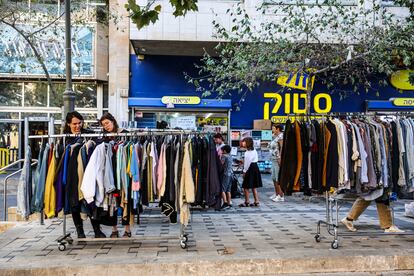
Daniel Kupervaser, a 77-year-old economist, admits that the word “frustration” best describes his feelings since the beginning of the war and the suffering it has inflicted. “The concern for loved ones, the helplessness over a possible uncontrollable tragedy, accompany us day and night,” he says in a text message exchange from Herzliya, north of Tel Aviv. In his home, he is sheltering relatives from Kibbutz Or Haner, on the northern border of Gaza. “The rest of my family is still in their homes, with regular runs to the shelters,” he explains. “The whole routine is disrupted and conditioned. Work is heavily affected by the situation, and schools for my grandchildren are gradually starting up again, depending on the availability of shelters.”
Double school schedule
In Eilat, a tourist city sandwiched between Egypt and Jordan at the bottom of the Gulf of Aqaba, the population has doubled with the arrival of more than 60,000 civilians displaced by the conflict from areas bordering the Palestinian strip and Lebanon. They have been accommodated in luxury hotels on the Red Sea coast. The minors had to be urgently enrolled in school, and for this purpose the teaching schedule in the schools was doubled in morning and afternoon shifts.
Meanwhile, in the Israeli countryside, the labor force has dwindled after Asian immigrants requested to be repatriated following the outbreak of the war. Hundreds of volunteers from the cities have taken their place in the essential tasks, such as collecting fruit and milking dairy cows. The 52-year-old computer engineer Ishai Atsmov was working Thursday morning on the farm at Kibbutz Mirim, located less than a mile from the Gaza Strip, an area where 20% of the country’s milk is produced. Wearing an anti-fragmentation protective vest and combat helmet, he has travelled together with other volunteers from the Haifa province (northern Israel). “It’s not the first time I’ve been here. The cows are not to blame for everything that’s going on,” he jokes, shortly after having to run to take cover in a shelter after the alarms were triggered by Qasam rocket fire from Gaza.
The 33-year-old Nir Zerav, who runs a fish market in the traditional Mahane Yehuda market in central Jerusalem, smiles and describes how the war has scared away many customers, but has not affected the takings. “Those who are coming now are stockpiling food in anticipation that the war will drag on, and supply chains will collapse,” he explains. “But what has changed the most is the presence of armed people, many carrying large assault rifles instead of pistols,” he warns. Since October 7, some 120,000 Israelis have applied for “private” gun licenses, according to data from the Ministry of National Security, which oversees police activity, and quoted by The Jerusalem Post, which reported that there are no places left to practice at shooting clubs. The Netanyahu government permits possession of twice as much ammunition, up to 100 rounds, and has relaxed licensing requirements. There had not been so many guns on the streets of Israel for almost a decade since the 2014 Gaza conflict.
Sign up for our weekly newsletter to get more English-language news coverage from EL PAÍS USA Edition
Tu suscripción se está usando en otro dispositivo
¿Quieres añadir otro usuario a tu suscripción?
Si continúas leyendo en este dispositivo, no se podrá leer en el otro.
FlechaTu suscripción se está usando en otro dispositivo y solo puedes acceder a EL PAÍS desde un dispositivo a la vez.
Si quieres compartir tu cuenta, cambia tu suscripción a la modalidad Premium, así podrás añadir otro usuario. Cada uno accederá con su propia cuenta de email, lo que os permitirá personalizar vuestra experiencia en EL PAÍS.
¿Tienes una suscripción de empresa? Accede aquí para contratar más cuentas.
En el caso de no saber quién está usando tu cuenta, te recomendamos cambiar tu contraseña aquí.
Si decides continuar compartiendo tu cuenta, este mensaje se mostrará en tu dispositivo y en el de la otra persona que está usando tu cuenta de forma indefinida, afectando a tu experiencia de lectura. Puedes consultar aquí los términos y condiciones de la suscripción digital.








































